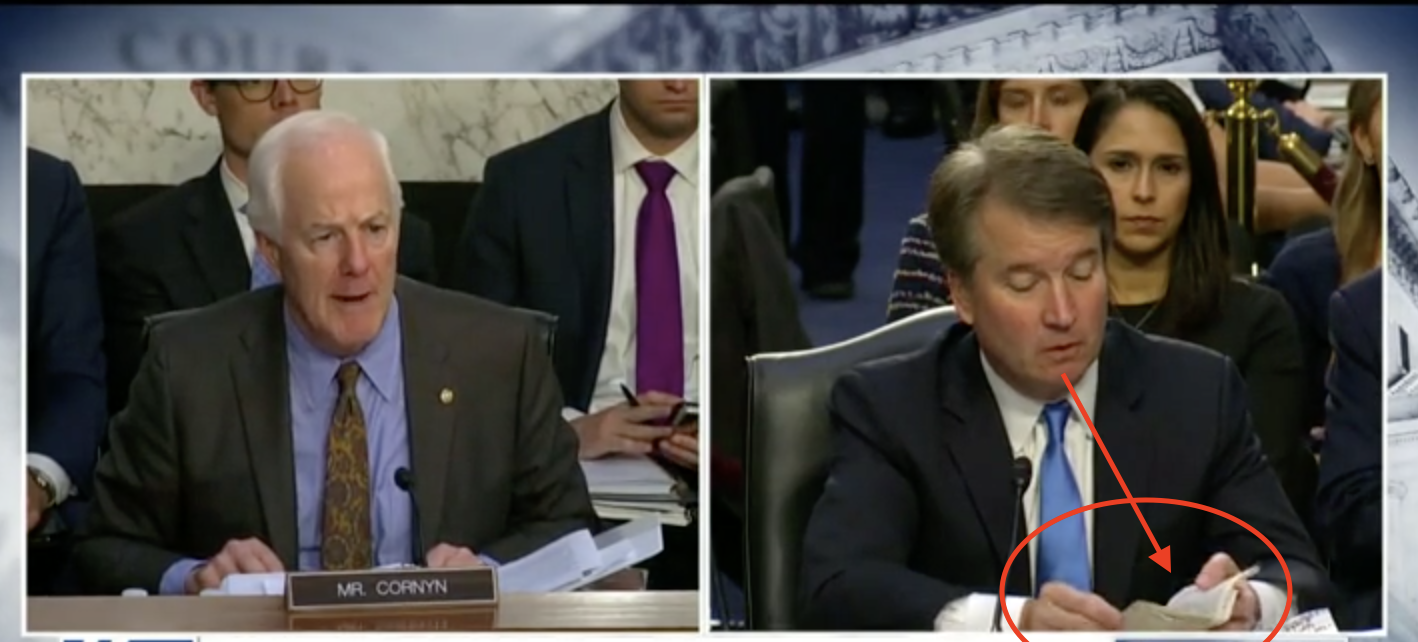Brett Kavanaugh has faced nearly 20 hours of questioning and statements by members of the Senate Tuesday and Wednesday. One question, posed by GOP Senator John Cornyn, caused Kavanaugh to reach into his pocket for some help.
Cornyn was in the midst of a series of questions over his judicial decision-making process:
Judges, unlike legislators, don’t run for election. You don’t have a platform. One of the most important elements of limiting the important role of judges, I think, under the Constitution, is that you’re required to decide a case on a case-by-case-by-case basis rather than issuing some sort of Oracle saying ‘Henceforth, the law will be thus,’ assuming you can get eight other judges to agree with you. Can you talk about the importance of deciding cases on a case by case basis?
After being interrupted by a protester, Kavanaugh reached for his worn pocket Constitution and began reading.
“As judges, you don’t just issue policies or issue opinions out of the blue,” Kavanaugh said, reading from his Constitution, “You decide, as Article 3 says: ‘Cases and Controversies.’ That means there’s a process.”

Kavanaugh Asked About How He Will Decide Cases – Whips Out A Constitution And Begins Reading
Screenshot/Fox News
Kavanaugh continued, “There’s a process. I like to say, ‘Process protects you.’ That’s one of my things that I like to keep in mind. You go through a process to help make good decisions — a deliberative process. We’re focused on process. Having the oral argument, having the briefing and talking to your colleagues. You change your mind.”
Kavanaugh made a final point about his decision-making process: “You’re trying to resolve this case under the principles of precedents, the text of the law in question, the text of the statute in question and decide that case or controversy. That’s how judges build up a system of precedent over time, by deciding one case at a time and not trying to do more than they can or more than they should.”
WATCH:


